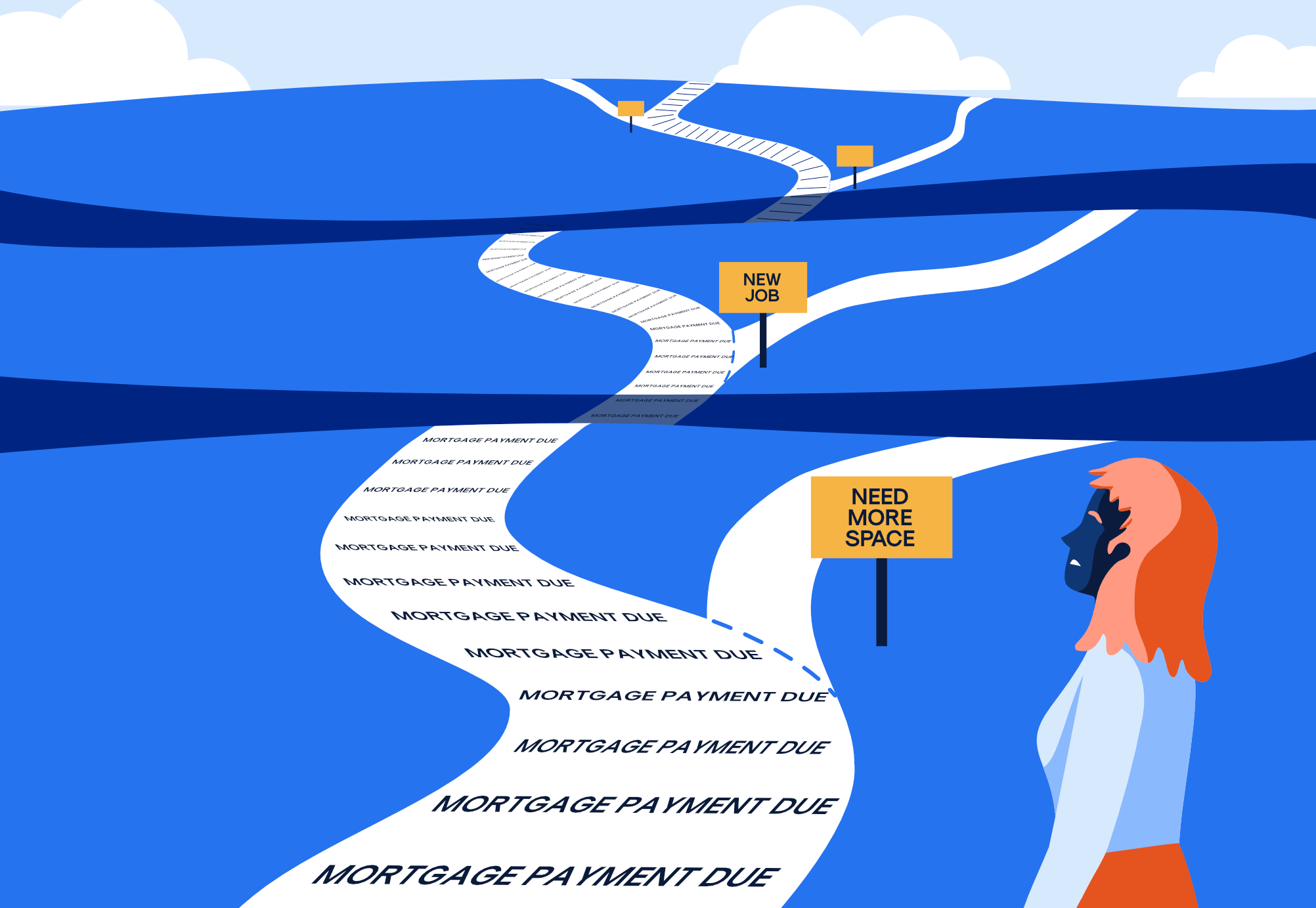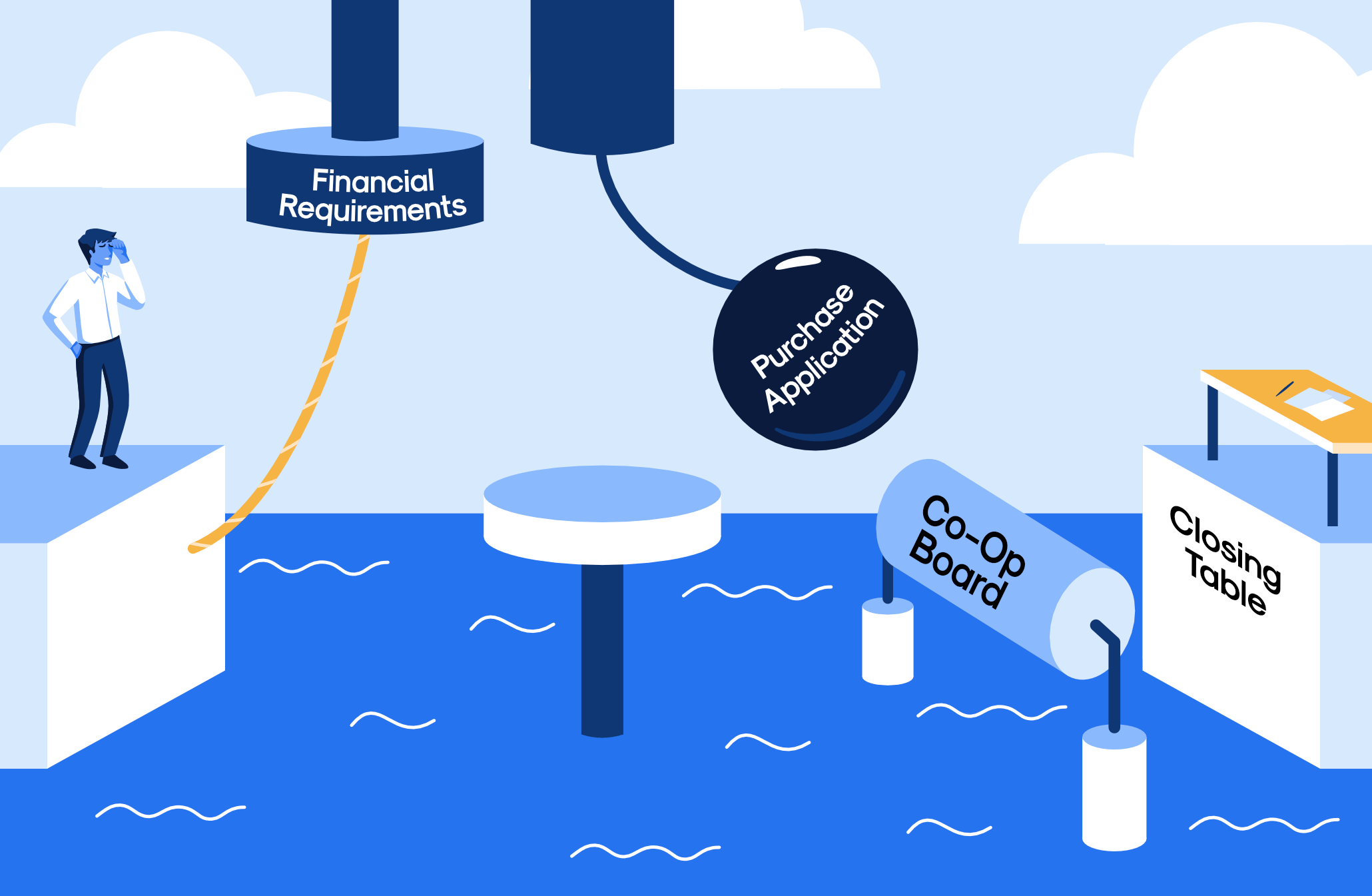If you’re taking out a mortgage, chances are it’s a 30 year fixed. According to Freddie Mac, 90% of buyers do just that.
There are a lot of reasons to like the 30 year fixed mortgage. In fact, there are so many reasons that it’s hard to find one outside the United States. But where there are pros, there are also cons. Before locking into one, take a few minutes to make sure it’s appropriate for your situation.
Table of Contents:
History of the 30 year fixed mortgage
Advantages of a 30 year fixed mortgage
Disadvantages of a 30 year fixed mortgage
Why is a 30 year fixed mortgage rarely appropriate in NYC?
When does a 30 year fixed mortgage make sense?
History of the 30 year fixed mortgage
If you go back to the early 1900s, the 30 year fixed mortgages didn’t exist. In fact, the mortgage market was significantly different than today’s in a lot of ways.
Most buyers would borrow from a bank for a few years, most commonly 3-6. When that loan came due, they would take out another loan. That worked until it didn’t. Once the Great Depression hit, banks stopped making loans and homeowners were not able to “roll” their mortgage into a new mortgage and a crisis ensued.
In response, FDR created the Home Owners’ Loan Corporation (HOLC) which bought mortgages and issued new mortgages in their place. In the process, they stretched out durations from 3-6 years to 15 years.
The Federal Housing Administration (FHA), which still exists today, got involved later on and gradually, longer and longer mortgage products were created until we reached 30 years. Fast forward to today and it dominates the mortgage market. According to Freddie Mac, 90% of buyers use a 30 year fixed mortgage while only 6% opt for a 15 year fixed, 2% an adjustable rate mortgage (ARM) and 2% other.
Advantages of a 30 year fixed mortgage
Even people that haven’t purchased a home probably know the big advantage of a 30 year fixed mortgage. Your interest rate and monthly payment are locked in for a whopping 30 years. Think about that for a second - you are guaranteed to pay the same interest rate for a significant chunk of your life!
That monthly payment certainty is very valuable. If you need a reminder why, just look at the housing crisis. One of the primary catalysts was ARMs resetting at higher interest rates than owners could afford. For as long as you have a 30 year fixed mortgage, your monthly payment will be exactly the same, down to the penny.
That monthly payment will also be lower than other products. You don’t have to be a lending guru to understand that the longer you take to pay back a loan, the less you have to pay each month. By paying back less each month, your monthly payments are kept low.
A lower monthly payment is an especially big advantage when buying a co-op. A co-op usually requires a debt to income ratio under 25% and your mortgage payment is the majority of that debt payment. If you take out a 15 year mortgage, your monthly payment will be larger and therefore your income will also need to be higher.
Say you were considering both a 30 year fixed mortgage with a 4% interest rate and a 15 year fixed mortgage where it was 3.5%. Even with the lower rate on the 15 year, your monthly payment would be almost 50% higher due to the increased principal payment and therefore your income would need to be 50% higher as well.
Disadvantages of a 30 year fixed mortgage
Having low payments is a double edged sword. By paying off your mortgage over a longer period of time, you’re also building equity at a slower rate.
Each month, your mortgage payment goes to both interest and principal. With a 30 year fixed mortgage, very little of your monthly payment will go to principal reduction. At current interest rates, only about 30% of your initial payments will go to principal. That compares to about 55% with a 15 year fixed mortgage.
As a homeowner, you want to pay down your principal as it is essentially saving money. With each payment, you owe your lender a little bit less which means you own that much more of the property. You will build equity at a slow pace with a 30 year fixed mortgage.
The interest rate you pay is also a drawback. Remember how great it is to be guaranteed the same interest rate for 30 years? That doesn’t come free. The longer you borrow money, the higher rate you are going to pay. The chart below shows the average 15 year fixed mortgage rate compared to the average 30 year fixed mortgage rate.

While the rate difference varies, you can see the 30 year fixed always carries a higher interest. Over the last five years, that interest rate differential has averaged 0.7% with a range of 0.5% to 0.9%.
Why is a 30 year fixed mortgage rarely appropriate in NYC?
A 30 year fixed mortgage doesn’t make sense in NYC because most buyers will sell after only 5-7 years.
Remember - when you take out a 30 year fixed mortgage, you're paying more (in the form of a higher interest rate) for the right to lock in an interest rate for 30 years. If you are not going to use all 30 years, you’re overpaying.
A 15 year fixed mortgage would get you a lower interest rate but the higher payments are often an impediment for buyers. A good compromise is an ARM. While they got a bad reputation in the housing crisis, they often make a lot of sense for NYC home buyers.
By taking out an ARM, you are better matching your interest rate with the likely duration of your ownership. While everyone has their own situation, we have found the average owner in NYC stays put for 5-7 years which matches nicely with a 5 or 7 year ARM.
With an ARM, you will be guaranteed the same rate for the likely duration of your ownership while still benefiting from the low payments of a 30 year repayment period.
If you are buying a co-op, a 30 year fixed mortgage makes even less sense. Since most co-ops will restrict how long you can sublet (rent) your apartment, you often can't keep it as an investment property when you move on.
When does a 30 year fixed mortgage make sense?
If for any reason it’s likely you will own the property a long time, a 30 year fixed mortgage makes tons of sense. That interest rate guarantee is very valuable, you just need to actually use it.
Maybe you're moving for a new school district and you'll be there until your kids go off to college. Another reason could be you recently retired and planning on staying put for the foreseeable future.
And if you plan on keeping the property as an investment after you’ve outgrown it, a 30 year fixed mortgage can also make sense. Please keep in mind that when you take out a mortgage, you will be asked to promise to use the home as your primary residence for a certain period of time. Usually that is just one year though.
This post should not be used as financial, legal or tax advice. Every buyer's situation is unique so please contact a qualified professional if you have any questions about your particular situation or transaction.

